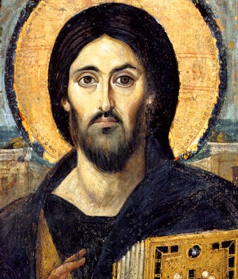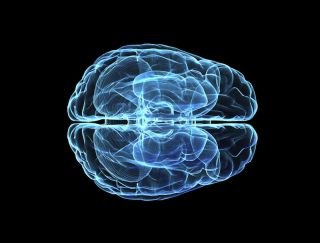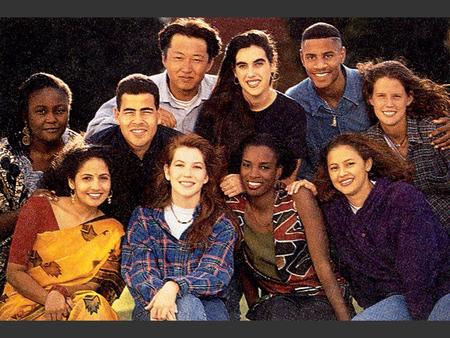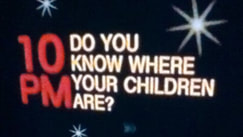
Where Is Your Heart?
There used to be a slogan that went around when I was younger. It roughly went something like this: “It’s 10:00. Do you know where your children are?” When I was in college, the dorms on campus were hit with a rather bizarre rash of thefts where someone stole the furniture out of the dormitories. Pretty soon signs went up all over campus asking, “It’s 10:00. Do you know where your dorm furniture is?”
The spiritual life begins with a very similar question that goes like this: “It’s 10:00 (or any other time). Do you know where your heart and mind are?” A person’s heart and mind devise their priorities, determine their loyalties, and direct their actions. It is a common expression to speak of appealing to the hearts and minds of people. During the Vietnam war, the U.S. Government under President Johnson frequently spoke about winning the hearts and minds of the Vietnamese people. The same language was used by the Bush administration in reference to the people of Afghanistan and Iraq during those military occupations. The basic idea is that the heart will commit a person to a cause or a program or even a person and the mind will figure out what to do to achieve the purposes of that cause, program or person.
Moses understood this clearly. In the book of Deuteronomy, as he sums up the law for the people of Israel before they prepare to cross over the Jordan into Canaan, he does it this way: “Hear, O Israel: The Lord is our God, the Lord alone. You shall love the Lord your God with all your heart, and with all your soul, and with all your might” (Deuteronomy 6:4-5). When he was asked to sum up the Law, Jesus cites this very same passage and adds, “And you shall love your neighbor as yourself” (Matthew 22:39; cf. Leviticus 9:18). The heart provides the inclination, and the mind activates the action.
So here is the question: Where is your heart? Is your mind where your heart is? And most importantly for us in this era of social media manipulation by corporate and political interests, who has access to your heart and mind? Who and what has shaped how you think and feel about things? Who has instilled what sort of fears and anxieties in your consciousness? What are the unseen forces pulling on the strings of your mind? What memes and propaganda have sunk their barbs into you?
So it is that the first step in exploring the Jesus Path for the 21st Century is to take stock of the worries, fears, and anxieties that have seized control of our lives.
There used to be a slogan that went around when I was younger. It roughly went something like this: “It’s 10:00. Do you know where your children are?” When I was in college, the dorms on campus were hit with a rather bizarre rash of thefts where someone stole the furniture out of the dormitories. Pretty soon signs went up all over campus asking, “It’s 10:00. Do you know where your dorm furniture is?”
The spiritual life begins with a very similar question that goes like this: “It’s 10:00 (or any other time). Do you know where your heart and mind are?” A person’s heart and mind devise their priorities, determine their loyalties, and direct their actions. It is a common expression to speak of appealing to the hearts and minds of people. During the Vietnam war, the U.S. Government under President Johnson frequently spoke about winning the hearts and minds of the Vietnamese people. The same language was used by the Bush administration in reference to the people of Afghanistan and Iraq during those military occupations. The basic idea is that the heart will commit a person to a cause or a program or even a person and the mind will figure out what to do to achieve the purposes of that cause, program or person.
Moses understood this clearly. In the book of Deuteronomy, as he sums up the law for the people of Israel before they prepare to cross over the Jordan into Canaan, he does it this way: “Hear, O Israel: The Lord is our God, the Lord alone. You shall love the Lord your God with all your heart, and with all your soul, and with all your might” (Deuteronomy 6:4-5). When he was asked to sum up the Law, Jesus cites this very same passage and adds, “And you shall love your neighbor as yourself” (Matthew 22:39; cf. Leviticus 9:18). The heart provides the inclination, and the mind activates the action.
So here is the question: Where is your heart? Is your mind where your heart is? And most importantly for us in this era of social media manipulation by corporate and political interests, who has access to your heart and mind? Who and what has shaped how you think and feel about things? Who has instilled what sort of fears and anxieties in your consciousness? What are the unseen forces pulling on the strings of your mind? What memes and propaganda have sunk their barbs into you?
So it is that the first step in exploring the Jesus Path for the 21st Century is to take stock of the worries, fears, and anxieties that have seized control of our lives.

The Restless Heart
Anxiety and worry are related to where the heart is. This is because the human heart is basically restless and seeks satisfaction. Augustine put it pointedly: “Our hearts are restless, O Lord, until they rest in thee.” Because our hearts are restless, we seek some sort of resting, some sort of satisfaction. This takes many forms. Some people become obsessed with money and material comforts. Others are incessantly busy, working on that project or helping with this cause, not because it is an expression of what they are drawn to do, but because they are so uncomfortable with themselves that they hide from their restlessness in a blur of frenetic activity and busy-ness. Others seek the adulation of others or seek to become the envy of their neighbors. Others may drift from job to job, or community to community, never quite finding their niche or place. Still their hearts are restless and yearn for satisfaction.
The danger of a restless heart is that is lacks direction, particularly an internally-guided sense of direction. A restless heart all too easily becomes adrift in life, simply going where the flow and flood of society takes it. Therefore it is significant that at the start of his ministry, Jesus addresses the question of where people are headed in life. In the Gospels of Matthew and Mark, Jesus begins his ministry by calling people to repent: “From that time on Jesus began to preach, ‘Repent, for the kingdom of heaven is near’” (Matthew 4:17; see Mark 1:15).
But what exactly is repentance? In the Koiné Greek, the word for repentance is metanoia, which literally means to change one’s mind, to change the direction of one’s mind, and thus one’s life. (See Jesus and the Bigger Mind.) In fact, metanoia more accurately translates as “beyond the (normal) mind,” and the force of the verb indicates going beyond our normal consciousness or way of thinking into a deeper, bigger mind. Jesus calls out, “Repent! Redirect your mind!” But what does this mean? Perhaps it is best to think of metanoia as not just a turning, but also a re-turning of the heart to the way, the way that moves us into a bigger circle of consciousness.
Anxiety and worry are related to where the heart is. This is because the human heart is basically restless and seeks satisfaction. Augustine put it pointedly: “Our hearts are restless, O Lord, until they rest in thee.” Because our hearts are restless, we seek some sort of resting, some sort of satisfaction. This takes many forms. Some people become obsessed with money and material comforts. Others are incessantly busy, working on that project or helping with this cause, not because it is an expression of what they are drawn to do, but because they are so uncomfortable with themselves that they hide from their restlessness in a blur of frenetic activity and busy-ness. Others seek the adulation of others or seek to become the envy of their neighbors. Others may drift from job to job, or community to community, never quite finding their niche or place. Still their hearts are restless and yearn for satisfaction.
The danger of a restless heart is that is lacks direction, particularly an internally-guided sense of direction. A restless heart all too easily becomes adrift in life, simply going where the flow and flood of society takes it. Therefore it is significant that at the start of his ministry, Jesus addresses the question of where people are headed in life. In the Gospels of Matthew and Mark, Jesus begins his ministry by calling people to repent: “From that time on Jesus began to preach, ‘Repent, for the kingdom of heaven is near’” (Matthew 4:17; see Mark 1:15).
But what exactly is repentance? In the Koiné Greek, the word for repentance is metanoia, which literally means to change one’s mind, to change the direction of one’s mind, and thus one’s life. (See Jesus and the Bigger Mind.) In fact, metanoia more accurately translates as “beyond the (normal) mind,” and the force of the verb indicates going beyond our normal consciousness or way of thinking into a deeper, bigger mind. Jesus calls out, “Repent! Redirect your mind!” But what does this mean? Perhaps it is best to think of metanoia as not just a turning, but also a re-turning of the heart to the way, the way that moves us into a bigger circle of consciousness.
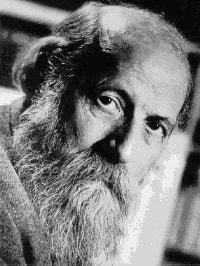
The Way of the Heart
Jesus left behind a Way of living that is a way to the heart of Love itself. It is a Way of thinking, a Way of living fully and joyously, a Way of transforming human relationships, and a Way of spiritual and personal healing and expansion of consciousness. It encompasses body, mind, and soul. It keeps you grounded on the earth, in the here and now at the same time it floods you with the power of the Spirit and a vision of the Eternal. It transforms people into being the means whereby the prayer “Thy will be done, on earth as it is in heaven” is made real. This is what Jesus taught and equipped his followers to become and to do. the same is true today.
So let's talk more about this Way and the Bigger Heart. This can be illustrated by considering what it means to have a “way” as taught in the Hasidic Jewish tradition as interpreted by Martin Buber, who was one of the great religious and philosophical thinkers and writers of the last century. He is particularly famous for his interpretation of Hasidic stories, “examining and explaining the basic tenets of a way of life which lies near the center of Judaism.” In his book, The Way of Man: According to the Teaching of Hasidism, Buber explains the centrality of searching the human heart in Hasidism:
- Every person born into this world represents something new, something that never existed before, something original and unique. ‘It is the duty of every person in Israel to know and consider that he is unique in the world in his particular character and that there had never been anyone like him in the world, for if there had been someone like him, there would have been no need for him to be in the world. Every single man is a new thing in the world, and is called upon to fulfill his particularity in this world. For verily: that this is not done, is the reason why the coming of the Messiah is delayed.’ Every man’s foremost task is the actualization of his unique, unprecedented and never-recurring potentialities, and not the repetition of something that another, and be it even the greatest, has already achieved. (Martin Buber, The Way of Man: According to the Teaching of Hasidism, ( ), p. 16)
Hasidism teaches that each person has a way, or a path, that is unique for them. As important as following one’s given way may be, it is not presented to us on a golden scroll at birth. It is a path that must be discerned by examining one’s heart. “The decisive heart-searching is the beginning of the way in (human) life; it is again and again the beginning of a human way. But heart-searching is decisive only if it leads to the way.”

This heart-searching of which Buber speaks is the kind of “repentance” - or metanoia - that Jesus talks about. Repentance as metanoia, involves this searching of one’s heart, in order to return to one’s path, one’s way. So, Jesus is saying, “Where are you going? Where is your heart leading you? Where is your treasure? What is the treasure that is calling out to your heart? Where are you going?” Repentance means to return to searching the heart, realizing that the purpose of searching one’s heart is not to berate oneself for failures or for getting off the track, the path, but rather to get back on the path, that it is possible to return to the path, to the way. But it requires that searching, that asking of “Who am I? Where am I going? Where is my heart taking me? Where is my treasure?”
Buber goes on to say:
The Way of the Heart is that Way that leads us directly into being the very person that only we can uniquely be, not a copy or clone of someone else, not the product of what a dysfunctional, violence-prone, consumption-driven culture would malform us into being.
Buber goes on to say:
- Every person born into this world represents something new, something that never existed before, something original and unique…. Every (person’s) foremost task is the actualization of his unique, unprecedented and never-recurring potentialities, and not the repetition of something that another, and be it even the greatest, has already achieved.” Buber then relates the famous quote of Rabbi Zusya: “In the world to come I shall not be asked, ‘why were you not Moses?’ I shall be asked: ‘Why were you not Zusya?’”
The Way of the Heart is that Way that leads us directly into being the very person that only we can uniquely be, not a copy or clone of someone else, not the product of what a dysfunctional, violence-prone, consumption-driven culture would malform us into being.
Read more about Bigger Heart and Justice and Right Relationships as well as Practices of Compassion to cultivate the Bigger Heart.
Click on the images below to read about JP21-BiggerMind; JP21-Bigger Heart; JP21-Bigger World; JP21-Bigger Life; JP21-Way of Ways.
Click on the images below to read about JP21-BiggerMind; JP21-Bigger Heart; JP21-Bigger World; JP21-Bigger Life; JP21-Way of Ways.
Proudly powered by Weebly

